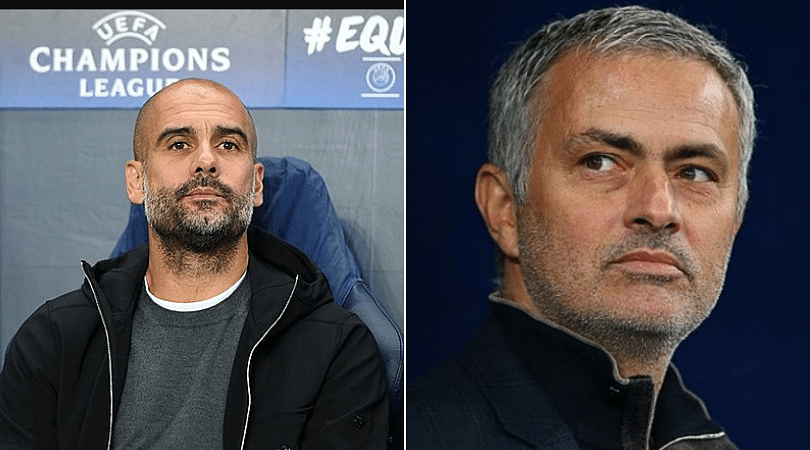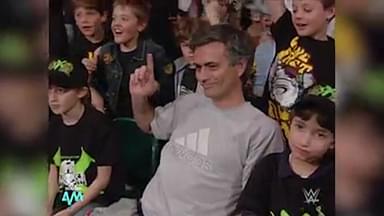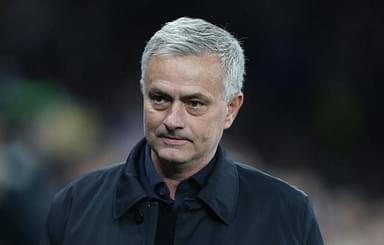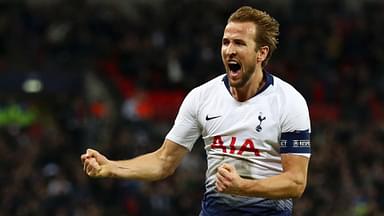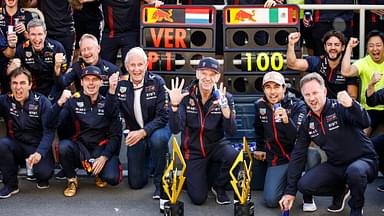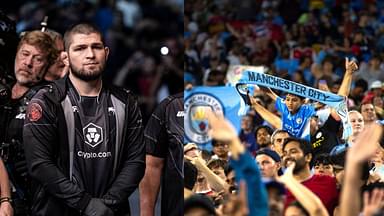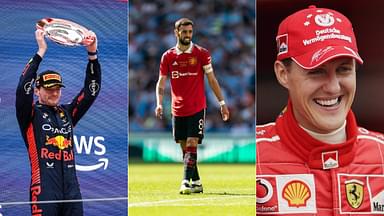The gulf between City and United has widened over the years to such an extent that yesterday’s result doesn’t come as a shock.
After Pep Guardiola’s side thumped Manchester United 3-1 at the Etihad Stadium last night, Jose Mourinho was told by an interviewer that his side is closer to Cardiff City than it is to the league leaders.
“I think we are not going to be relegated,” Mourinho replied.
The statement might be said in jest, but it is a fair reflection of how Manchester United have fallen over the last few years.
…
After the loss to Manchester City, United find themselves at 8th position as the players head out for the international break. The result against their city rivals wasn’t surprising – instead, after it was confirmed that Paul Pogba would miss the game, a possibility of defeat touched the borderline of inevitability.
Manchester United started with Nemanja Matic, Ander Herrera and Marouane Fellaini in the midfield – almost resembling a bunch of guard-towers from the Age of Empires. In opposition was Manchester City – no less than the Imperial Guard from Warhammer 40K. Justifiably, Guardiola’s men ran around United, as Mourinho sat deep to keep things tight – or at least tried to.
As season’s first Manchester derby came to an end, we salvage time to reflect upon the vast dissimilarities between the two sides. How did it come to this?
Style:
Jose Mourinho’s inclination towards being defensive, without having the appropriate resources to successfully implement it has been annoying for the United fans.
The Portuguese manager chose to play Marouane Fellaini as Paul Pogba was ruled out of injury – despite the fact that a fully fit Fred was on the bench. It is also worth noting that Mourinho admitted Fellaini wasn’t ready to start. The change didn’t take place even when it was apparent that the United midfield was being consistently overrun. Ander Herrera had one of his worst performances in a United shirt last night – it took 73 minutes for Mourinho to substitute him for Juan Mata.
It is apparent by the results in the last few weeks that Manchester United have thrived when they were put on backfoot by the opposition, and eventually conceded. The players find a motive, which seems to have been missing at kick-off. The plan of action is only ever seen under Mourinho’s United when they chase the game, and the likes of Fellaini are brought on – ‘Plan B,’ as it is more commonly called on social platforms.
The problem for Mourinho yesterday, as he, in an incredible turn of events, admitted, was this – The Plan B was the Plan A, so there was no Plan B.
But is it solely down to Mourinho?
Investments:
When Pep Guardiola arrived at Manchester City, he had the likes of Aguero, De Bruyne, Silva and Sterling in his team. He parted ways with Joe Hart, signed Claudio Bravo, and then replaced him with Ederson a season later. City usually completed their deals quite early in the window. More importantly, Guardiola, at present, has players for every position.
To put it in perspective – while almost every top team in Europe would take Aguero in a heartbeat, Guardiola didn’t even feel the need to start him in the last season’s Manchester derby at Old Trafford. Heck, he didn’t even bring him as a sub. Result? Manchester City won 2-1
Compare this to Manchester United.
Jose Mourinho inherited a declining side with most players at the twilight of their career. The Portuguese manager cleared a major part of United’s deadwood (Rooney, Schweinsteiger, Memphis, Schneiderlin, Blind etc.) which was a regular feature under Louis van Gaal, injected the likes of Eric Bailly, Zlatan Ibrahimovic and Paul Pogba, and won a continental trophy in his first season.
In his second season, he took the next step – stabilizing the ship. United returned to Champions League, he brought Romelu Lukaku, and while they failed in Europe, Manchester United finished second-best in England.
The final task was to lead his stabilized ship to glory, but Mourinho was denied investment in his third season. Instead, we see Manchester United sinking deeper and deeper in time towards Mourinho’s first season.
In the summer transfer window, Jose often spoke against United’s board for their blatant incompetence in providing him with his desired list of players. The lack of football ideas at the hierarchy of the club, however, is evident ever since the departure of David Gill in 2013. Today, Manchester United, as their former manager Louis van Gaal said earlier this year, has become a ‘commercial club.’
…
It is a natural human tendency to find individuals to blame, but the problems are deeply rooted at Manchester United. While their style of football this season has created more confusion for the supporters than the opposition, the authoritative figures are in disharmony.
Together, it is only pushing the club further away from the traditions on which it was built.
